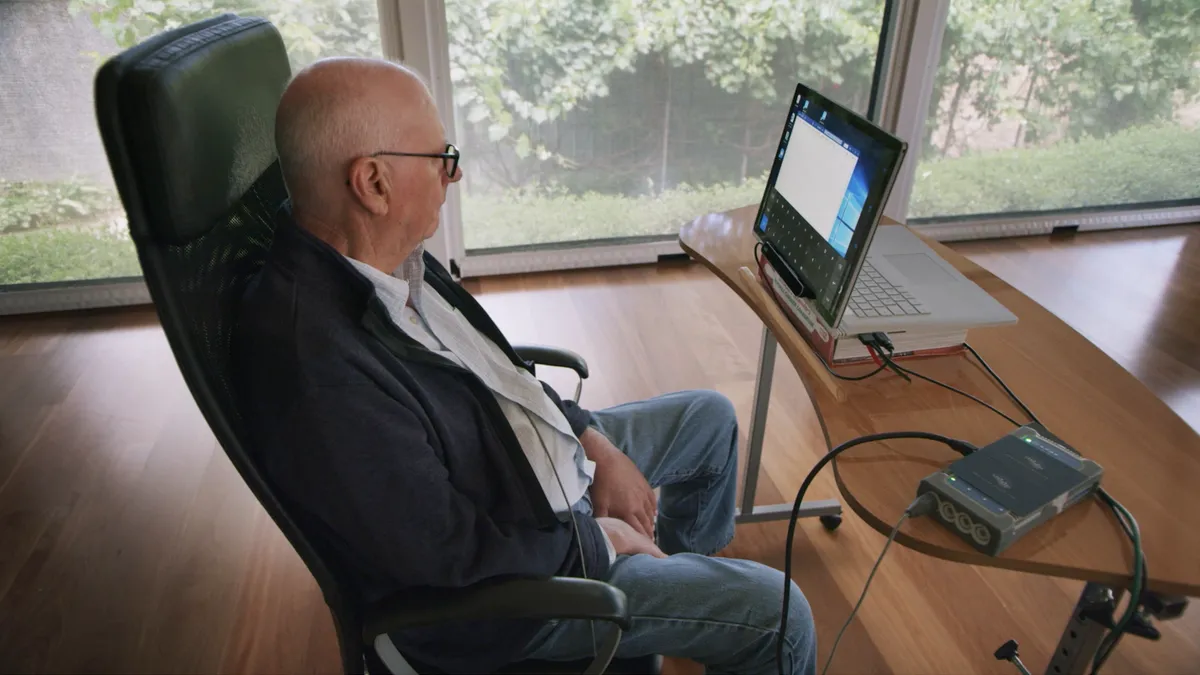Dive Brief:
- Synchron, which is developing a brain-computer interface that aims to restore functionality in people with severe paralysis, said Tuesday that six patients have received the implant in the company’s U.S.-based feasibility study.
- The milestone marks the completion of enrollment in the COMMAND trial, conducted under the first investigational device exemption awarded by the Food and Drug Administration to a company assessing a permanently implanted brain-computer interface, Synchron said.
- Results of the study are expected to be made available late next year, after 12 months of post-implant follow-up are completed, Synchron spokesperson Kimberly Ha said in an email.
Dive Insight:
The trial progress moves New York-based Synchron a step closer toward its goal of becoming the first company to offer an implantable endovascular neuromodulation therapy. Others vying to advance a brain-computer interface are Elon Musk’s Neuralink and Precision Neuroscience.
Synchron said the primary goal of the feasibility study is to assess if the device can be safely implanted into the blood vessels of the brain. The study also will evaluate efficacy measures for the Synchron Switch neuroprosthesis device in patients with severe paralysis.
Through a minimally invasive endovascular procedure, the brain-computer interface is implanted in the blood vessel on the surface of the motor cortex of the brain via the jugular vein. Once implanted, it is designed to detect and transmit motor intent out of the brain, wirelessly, to allow patients to control personal devices hands-free.
Patients who can no longer use their hands will be assessed on how the device may enable use of their thoughts to control digital devices for daily tasks such as texting, emailing, online shopping and accessing telehealth services.
The trial, which has received support from the National Institutes of Health’s BRAIN Initiative, is being conducted at three clinical sites: Mount Sinai Health System in New York City, University at Buffalo Neurosurgery and University of Pittsburgh Medical Center, in collaboration with Carnegie Mellon University College of Engineering.
Earlier this year, Synchron published results from its first-in-human study of four patients with severe paralysis who received the company’s first-generation Stentrode neuroprosthesis implant. The SWITCH study, led by doctors from the Royal Melbourne Hospital and the University of Melbourne, showed it is possible to use the device to transmit neural signals from inside a blood vessel in the brain over a long-term period without any serious adverse events related to the device.
The patients completed a 12-month follow-up with no persistent neurological deficits and no clots or migration of the device, according to the company. Participants were able to use the implant to generate digital switches to control routine activities such as texting, emailing, online banking and communicating care needs. The study results were published in JAMA Neurology.










